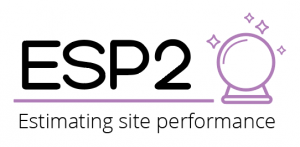Aberdeen Centre for Evaluation, University of Aberdeen, UK
The Aberdeen Centre for Evaluation at the University of Aberdeen is the lead centre for Trial Forge. Randomised controlled trials are the gold standard for evaluating healthcare treatments and thousands are done every year. Tens of billions of pounds of public and private money are invested globally in trials every year.
Some of these resources are being wasted. Despite trials being a cornerstone of evidence-based healthcare, how we make trial process decisions is a largely evidence-free zone. For example, every single trial has to recruit participants but so far methodological research has produced high certainty evidence for only a handful of recruitment interventions. Research questions may not reflect what patients and professionals are most interested in; existing evidence may be ignored; outcomes, especially secondary ones, may simply burden trials with collecting data that are never published. Trials are in desperate need of efficiency improvements.
Trial Forge was set up to help do this and the Aberdeen Centre is where Trial Forge activity is coordinated. Although we are interested in all trial processes, we tend to concentrate on recruitment, retention and data collection. We’re big fans of Studies Within A Trial (SWATs) and formal methods of prioritising unanswered research questions in trial methodology research.
WHAT IS A SWAT?
ABOUT ABERDEEN’S PROGRAM OF WORK
Prof Shaun Treweek leads the Aberdeen Trial Forge Centre’s work, along with Dr Heidi Gardner and Adel El Feky. A key additional collaborator here in Aberdeen is Dr Katie Gillies who leads a program of work on trial retention and patient-centred trials that we tap into.
We are running SWATs, mainly in recruitment and retention and work closely with the York Trial Forge Centre and its programme of SWATs. Were also have a portfolio of work around being more aware of the work involved with data collection and, perhaps, whether all those outcomes are really important. Two key projects in this regard are ORINOCO, which is looking at how long data collection takes and DataCat, a wide Trial Forge Collaboration that looks at the categories of data collected in trials, again with the goal of making everyone, us too, more aware of where data collection effort is being put.
We’re into telling the future too. The ESP2 project aims to see if trial managers can predict whether a trial site will meet its recruitment target. It builds on the pilot project ESP, which is described in this Trials paper. ESP2 is much bigger– we now want a 1000 trial manager predictions form around the world. We expect to launch in October 2019: watch this space!
Ongoing Funded Programmes
PROMETHEUS
This is a collaboration with the York Trial Forge Centre. The aim of this programme is to pump prime existing trial teams up to £5,000 to test commonly used strategies for improving trial recruitment and retention by embedding RCTs within already funded trials. The ultimate goal is to make the inclusion of Studies Within A Trial (SWATs) routine when conducting a trial.
ORINOCO
Trials are one of the best ways of testing treatments but they can be expensive and time consuming. The amount of data collected has a big influence on both cost and time. We aim to understand how much time trial teams spend collecting the most important trial data (called primary outcomes) compared to the other data they collect (secondary outcomes).
What are the most important unanswered trial process research questions?
There are lots of questions we could ask but what are the most important ones? We’ve worked with the James Lind Alliance, the Health Research Board – Trials Methodology Research Network, Dr Katie Gillies and others to get priority lists for recruitment and retention.
Recruitment
- PRIORITY 1: recruitment
- What are the Top 10 unanswered research questions in trial recruitment research?
Retention
- PRIORITY 2: retention
- What are the Top 10 unanswered research questions in trial retention research?
Systematic reviews
Recruitment reviews
- Strategies to improve recruitment to randomised trials
- What do we know about the effect of recruitment interventions that have been tested in randomised evaluations?
- Strategies to improve recruitment to randomised trials
- What do we know about the effect of recruitment interventions that have been tested in non-randomised evaluations?
- What are the factors that affect recruitment to randomised trials?
- What do we know about the factors that affect people’s decisions to take part in a trial or not?
Retention reviews
- Strategies to improve retention to randomised trials
- What do we know about the effect of retention interventions that have been tested in randomised evaluations? Dr Katie Gillies is now leading an update of this review.
- Strategies to improve retention to randomised trials
- What do we know about the effect of retention interventions that have been tested in non-randomised evaluations?
- What are the factors that affect retention to randomised trials?
- What do we know about the factors that affect people’s decisions to continue to stay involved in a trial or not?
Improving site selection
Estimating Site Performance (ESP)

The Estimating Site Performance–2 project (ESP2) project aims to test a tool that just might help. This Trial Forge project is led by trial managers based at the University of Aberdeen, UK and asks trial managers to make predictions about site recruitment after carefully considering eight ‘red flags’ for poor recruitment. These flags (e.g. lack of site staff engagement, or previous poor performance) were developed in the original ESP project, which was published in 2019 in Trials (https://trialsjournal.biomedcentral.com/articles/10.1186/s13063-019-3287-6).
ESP2 needs 1000 trial manager predictions from around the world and launched in October 2019. More details are at https://w3.abdn.ac.uk/hsru/ESP2/.
USEFUL STUFF
If you want to know what a Study Within A Trial is this document tells you and gives some practical tips on what to do. You can also look at the leaflets in English, French and German at the Trial Forge Resources page.
FUNDERS
PROMETHEUS – This project is funded by the Medical Research Council (MRC). – Grant number MR/R013748/1
ORINOCO – This project is funded by the Chief Scientist Office of Scotland. Grant number HIPS/18/20.

